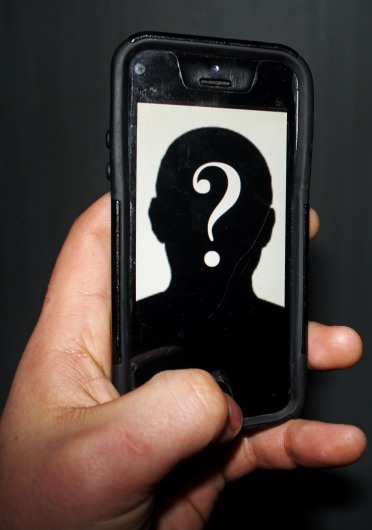Social media profiles are taken into consideration by many employers, but a study conducted by Ohio State researchers sheds a different light on the impact social media content has on one’s ability to secure a job.
Men who post more selfies on social media tend to show more signs of narcissism and psychopathy, according to the study, conducted by Jesse Fox, an assistant professor in the School of Communication. Furthermore, any form of photo editing leads to higher scores of narcissism and psychopathy.
Fox and Margaret Rooney, a graduate student studying communication who assisted with the study, analyzed the responses from a sample of 800 men from age 18 to 40 who were asked to answer questions regarding their photo posting behavior on social media via an online survey. Participants also completed questionnaires for anti-social behavior and self-objectification.
The study did not include women because the dataset, which Rooney and Fox said they took from Glamour magazine, did not provide comparable data for women.
“We found that the traits of narcissism and psychopathy predicted the number of selfies posted,” Rooney said. “People who are narcissists tend to be egocentric and think of themselves as more attractive or better than other people, and we see them posting a lot more selfies.”
Depending on the employer, selfies in general can be risky to have on any online profile because of how some employers might view that social practice, Fox said.
“Selfies are very casual and unprofessional, and most employers are of an older generation, so there’s still that age gap,” she said. “Now if you’re applying to a hip new social job like at Instagram, then that’s a different story.”
The context of any selfie can heavily affect people’s perceptions of the photo takers, so those under the eye of potential employers should be cautious of what they post, said Howard Klein, a professor of management and human resources at OSU.
“Taking a selfie at a party or doing something illegal is obviously going to be a lot more damaging than taking one of yourself doing a service project on Martin Luther King Day,” Klein said.
Questionable or even incriminating selfies negatively affect employers’ perceptions of prospective employees, but Rooney said the quantity of photos could also be questionable in the eyes of an employer.
“If you were to be interviewing someone and you see pictures of them plastered all over the place, you might think they are more narcissistic,” Rooney said. “Whether or not that’s true depends on the individual, but we might start to make assumptions about people based on what we see and their social media behavior.”
Even with social media websites like Facebook and Instagram allowing high levels of privacy settings, information can still be found about anyone, making online profiles risky for employees anticipating hire, Rooney added.
“I think people in general are getting smarter about privacy settings and things like that, but even with that, there’s still plenty of information out there that people can’t take down,” she said.
Klein points out, however, that fewer employers are screening employees through social media because the practice can paint companies in a discriminatory light.
“Most experts or attorneys would advise against it. The issue of using social media to evaluate candidates is messy to begin with,” Klein said. “Most of what you find on social media is completely irrelevant to the job and exposes companies to potential discrimination charges.”
According to a 2013 survey done by the Society of Human Resources and Management, 77 percent of organizations surveyed use social media sites to recruit potential employees, but only 20 percent of companies reported using social media to screen candidates during the hiring process.
Even though not all employers would necessarily make the connection between selfies and psychological dispositions toward psychosis or narcissism, it’s still safe to say that people should be cautious about what goes out into the public domain, Klein said.
“For students on the market, have your grandmother check your social media,” he said. “Anything you don’t want her to see, you probably don’t want your employer to see, either.”
Fox said she is doing follow-up work to see if these findings also apply to women, and is also conducting another study to see how selfies reinforce a person’s level of self-objectification. According to her hypothesis, more selfies lead to more feedback from friends, which in turn leads to more photos.
Rooney said she thinks it is important to study technology and social media usage, especially as it pertains to social psychology.
“It’s interesting to consider the implications of (social media technology),” Rooney said. “We see how it’s influencing our personalities, and our personalities influence how we use it.”
The study was published online in the journal Personality and Individual Differences on Dec. 24.



